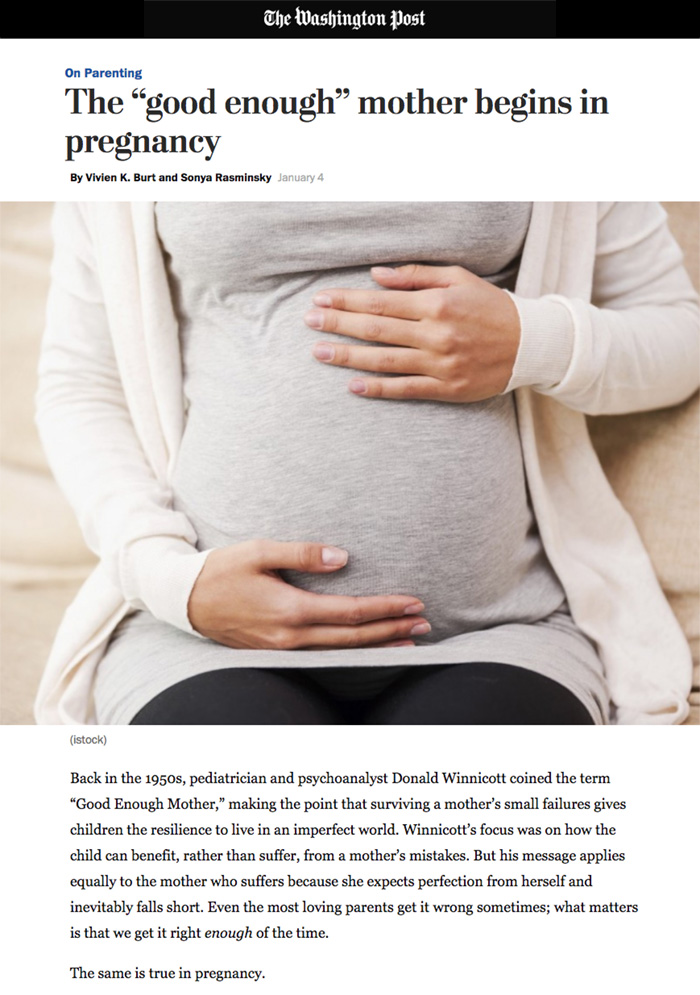 The Washington Post, by Vivien K. Burt and Sonya Rasminsky January 3
The Washington Post, by Vivien K. Burt and Sonya Rasminsky January 3
Read Article Online
Back in the 1950s, pediatrician and psychoanalyst Donald Winnicott coined the term “Good Enough Mother,” making the point that surviving a mother’s small failures gives children the resilience to live in an imperfect world. Winnicott’s focus was on how the child can benefit, rather than suffer, from a mother’s mistakes. But his message applies equally to the mother who suffers because she expects perfection from herself and inevitably falls short. Even the most loving parents get it wrong sometimes; what matters is that we get it right enough of the time. […]
Can J Clin Pharmacol Vol 16 (1) Winter 2009:e6-e14
Download Article
The burden of mental illness in general, and depression in particular, has long been
underestimated. One in 6 persons in the United States will, at some point, suffer from major depression. Depression is second only to heart disease as a leading cause of medical disability in
the U.S. Women are vulnerable to mood instability at times of life-cycle related hormonal
challenge (e.g., including the premenstruum, pregnancy, post-miscarriage, postpartum and
perimenopause). Neurobiological, genetic, and psychosocial substrates underlie the increased
vulnerability for depression in women. The significant negative impact of maternal depression
on maternal and child health and psychological well-being and other possible consequences of
chronic depression will be reviewed.
The enormous burden of female depression on women, their children and their families has been well-documented over the past two decades. What remains is the need for serious, rigorously conducted research into effective and safe treatments for depression in women, particularly at times of reproductive transition.
Journal of the American Medical Association — Vol 295, No. 5
Download Article
Context
Pregnancy has historically been described as a time of emotional wellbeing, providing “protection” against psychiatric disorder. However, systematic delineation of risk of relapse in women who maintain or discontinue pharmacological treatment during pregnancy is necessary.
Objective
To describe risk of relapse in pregnant women who discontinued antidepressant medication proximate to conception compared with those who maintained treatment with these medications.
 The Washington Post, by Vivien K. Burt and Sonya Rasminsky January 3
The Washington Post, by Vivien K. Burt and Sonya Rasminsky January 3